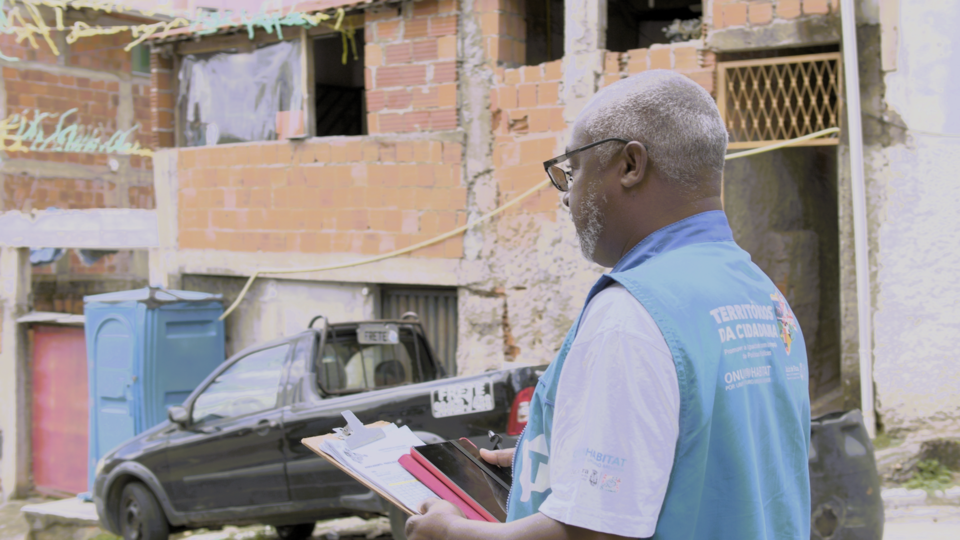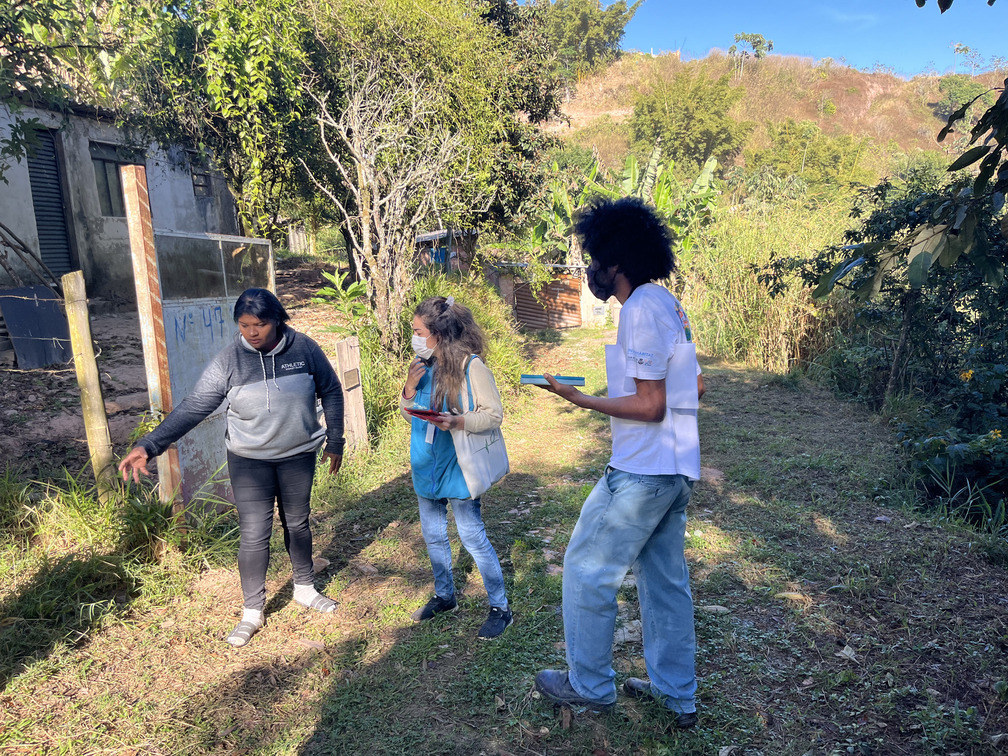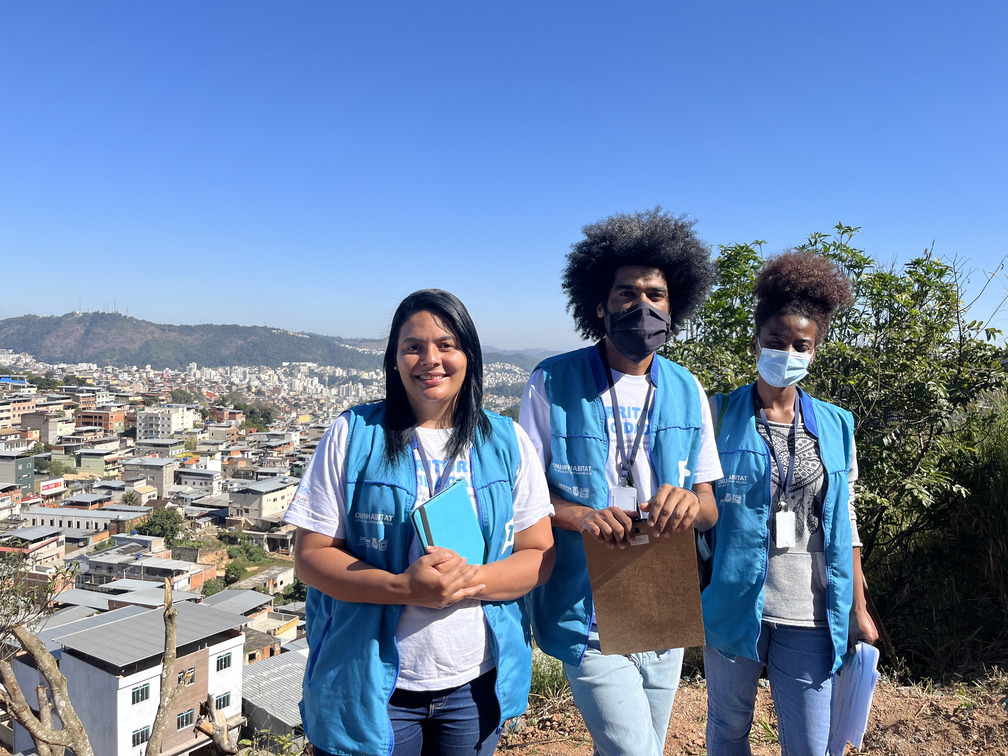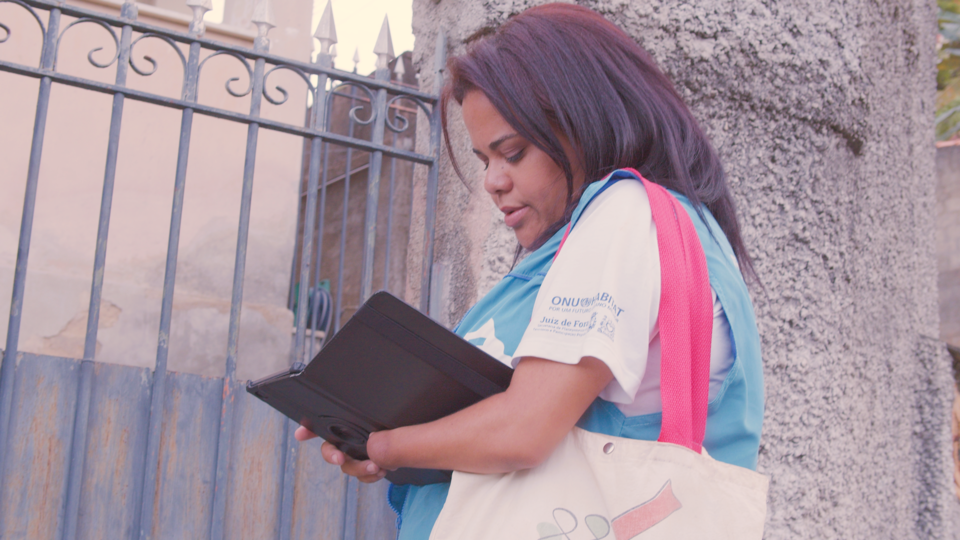Beyond the technology
Fostering sustainable cities: How UN-Habitat is using KoboToolbox for inclusive urban development in Brazil
With more than half the global population living in urban areas, including the 1.1 billion people living in slums or informal settlements, cities around the world are experiencing unprecedented environmental, economic, and social pressures. As the urban population continues to increase, sustainable and responsive urban development is imperative, especially in low- and middle-income countries where urban growth is most concentrated and critical infrastructure is most needed.
In Brazil, the United Nations Human Settlements Programme (UN-Habitat) is working with local leaders in the Juiz de Fora municipality to advance inclusive and transformative solutions to urban challenges. Using KoboToolbox, their collaborative Territories of Citizenship project aims to leverage up-to-date and accurate data to inform policies and improve service delivery for urban communities. Targeting support for the most vulnerable urban populations, the project is introducing a new approach to municipal governance that fosters intersectoral cooperation, information sharing, and collaborative problem solving among diverse stakeholders in the city.

As part of UN-Habitat’s mandate of building inclusive, resilient, and sustainable cities, the Territories of Citizenship project was launched in 2021, in partnership with Juiz de Fora City Hall. Adopting a social and territorial approach to achieving the Sustainable Development Goals, the first phase of the project collected data from 141 micro-territories on public infrastructure, shelter, and the socio-economic status of residents across the municipality. The second phase will focus on using the data insights to design, enhance, and implement public policies that support the city’s sustainable development strategy. With crucial data on urban communities, the project team can take informed action to improve access to basic services and promote socio-economic growth with the goal of reducing poverty and inequalities.
“Unprecedented surveys were carried out in 141 micro-territories in the municipality [including]: 137 informal settlements, based on the Special Zones of Social Interest established by the Participatory Master Plan of Juiz de Fora, 2 residential complexes, and 2 rural districts.” - UN-Habitat

To better understand the unique urban context of Juiz de Fora, the project’s field team brought together 31 professionals from vulnerable communities and marginalized groups in the city to lead the data collection process. The team used two data collection methodologies to gather almost 8,000 survey submissions over a six-month period, impacting an estimated 80,000 local residents.
“The project’s field team was made up entirely of residents of vulnerable areas of the city, totaling 31 professionals, where 70% were women and 60% [were] black. Almost 80,000 inhabitants (13% of the population) were impacted by the first stage of the project. The estimated population within the areas of interest is made up of 53.2% women, 22.6% under 20 years old, [and] 17.6% over 60 years old, with the majority identifying themselves as black (34.4%).” - UN-Habitat

The use of KoboToolbox throughout the project enabled the team to develop a comprehensive picture of the city’s dynamics and its residents. Using KoboCollect for field data collection, the team began with a Quick Participatory Mapping that used geotagged images to gain key insights about urban infrastructure, including in-depth data on public spaces, shelter, and infrastructure for education, transportation, and rainwater drainage. The second methodology used a Socio-Economic Profile to capture detailed information from households on topics such as livelihoods, community, and quality of life. In August 2022, the data and resulting analysis were shared with key UN-Habitat and Juiz de Fora City Hall representatives, providing crucial insights into the complexities of the urban environment and its diverse population.
“[KoboToolbox] was an essential tool for carrying out field research, assisting in the process of extracting offline coordinates, obtaining geolocated photos, [and] counting households in the sample survey, in addition to allowing the creation of highly customizable forms. Information management within the system was essential for efficient fieldwork execution and rapid analysis of post-collection results.” - UN-Habitat

The project’s next phase, the Public Policy Observatory, is a critical step for advancing sustainable and inclusive urban development in Juiz de Fora. Through extensive monitoring and evaluation, this initiative will assess existing programs to inform localized policies and services that respond to the diverse needs of the urban population as a whole. Importantly, this phase will increase the project’s reach across the municipality, improving access to programming and promoting long-term socio-economic wellbeing for all the city’s residents.
“[The data collected with KoboToolbox] allows [for] the creation of more assertive public policies, with integration of investments and overcoming territorial inequalities. This improves the quality of life and makes the city a better place for everyone.” - UN-Habitat
Access to detailed and comprehensive data has been essential to UN-Habitat’s efforts to achieve more socially and environmentally sustainable cities. In the municipality of Juiz de Fora, the Territories of Citizenship project has been integral to promoting locally-led development, social rights, and inclusive urban prosperity. Using the data collected with KoboToolbox, over 3,000 interventions have already been implemented to enhance safety, inclusivity, and sustainability for communities across the city. Looking ahead, the ongoing collaboration of UN-Habitat and the city of Juiz de Fora will foster a better urban environment that benefits all citizens equally and offers opportunities for improved quality of life.